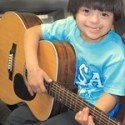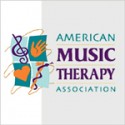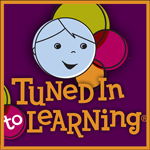What is Music Therapy?
How Music Therapy Helps

What is Music Therapy?
As defined by the American Music Therapy Association, music therapy is the clinical and evidence-based use of music interventions to accomplish individualized goals within a therapeutic relationship by a credentialed professional who has completed an approved music therapy program.
In serving special learners through the IEP or after-school programs, Coast Music Therapy treatments draw from research in two disciplines: Applied Behavior Analysis and Neurologic Music Therapy.
Neurologic Music Therapy (NMT) as defined by The Center for Biomedical Research in Music at Colorado State University is the therapeutic application of music to cognitive, sensory, and motor function due to neurologic disease of the human nervous system. Neurologic Music Therapy is research-based. Its treatment techniques are based on the scientific knowledge in music perception and production and the effects thereof on nonmusical brain and behavior function
Applied Behavior Analysis (ABA) as defined by the Association for Behavior Analysis International is the scientific study of behavior. This research-driven and data-based field is widely utilized in the treatment of autism and other developmental disabilities.
At Coast Music Therapy, our board certified music therapists integrate evidence-based techniques from both NMT and ABA while honoring the individual strengths, interests, and motivators of each of our students.

How Does Music Therapy Work?
- A board certified music therapist through formal or informal music therapy assessment learns more about your child through interview, records review, and direct interaction.
- The music therapist determines which of your child’s goal areas can be supported by music therapy as an intervention.
- The therapist develops and implements music therapy interventions which correlate directly with your child’s goals.
- After your child masters a skill through music, the music therapist gradually fades the music cues to help facilitate generalization to the non-music setting.

Common Music Therapy Techniques
Examples of music therapy interventions for children with autism and other special needs, drawn from the fields of Neurologic Music Therapy and Applied Behavior Analysis include:
- Musical Mnemonics Training
- Developmental Speech and Language Training Through Music
- Rhythmic Speech Cuing
- Therapeutic Singing
- Symbolic Communication Training Through Music
- Musical Attention Control Training
- Therapeutic Instrumental Music Performance
- Musical Executive Function Training
- Music Psychotherapy and Counseling
- Music as a Reinforcer
- Music to Teach Intraverbal Skills
- Music-Cued Social & Communication Scripts

How Do I Become a Music Therapist?
A professional music therapist holds a baccalaureate degree or higher in music therapy from one of 70+ college and university programs approved by the American Music Therapy Association (AMTA). After satisfying requirements of the degree, music therapists complete testing through the national Certification Board for Music Therapists (CBMT). Upon certification, music therapists receive the credential MT–BC (Music Therapist Board Certified).



